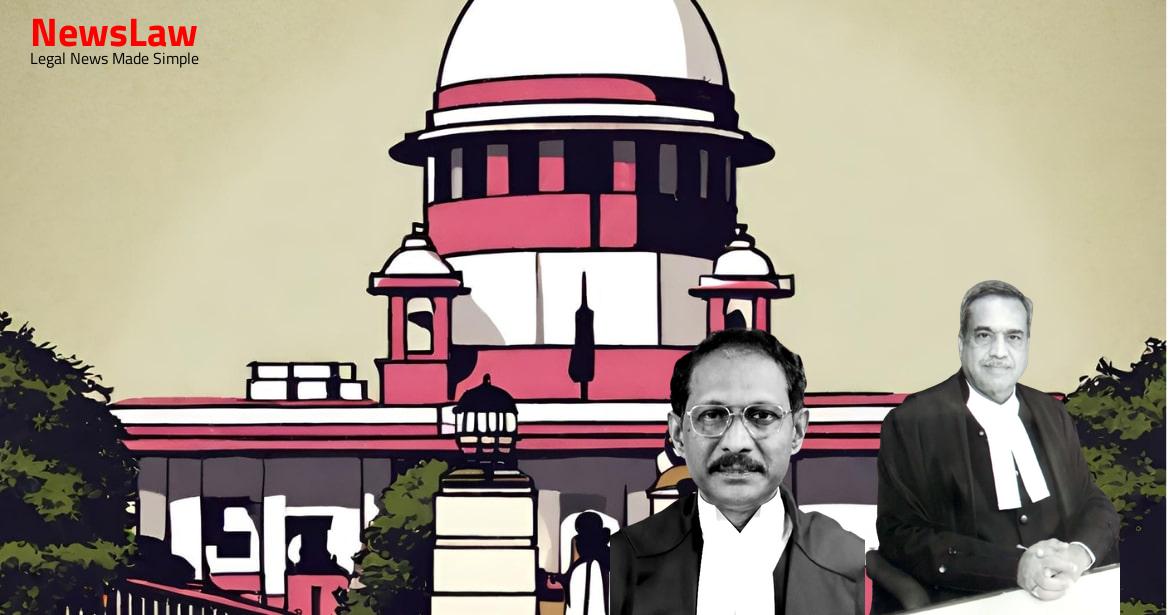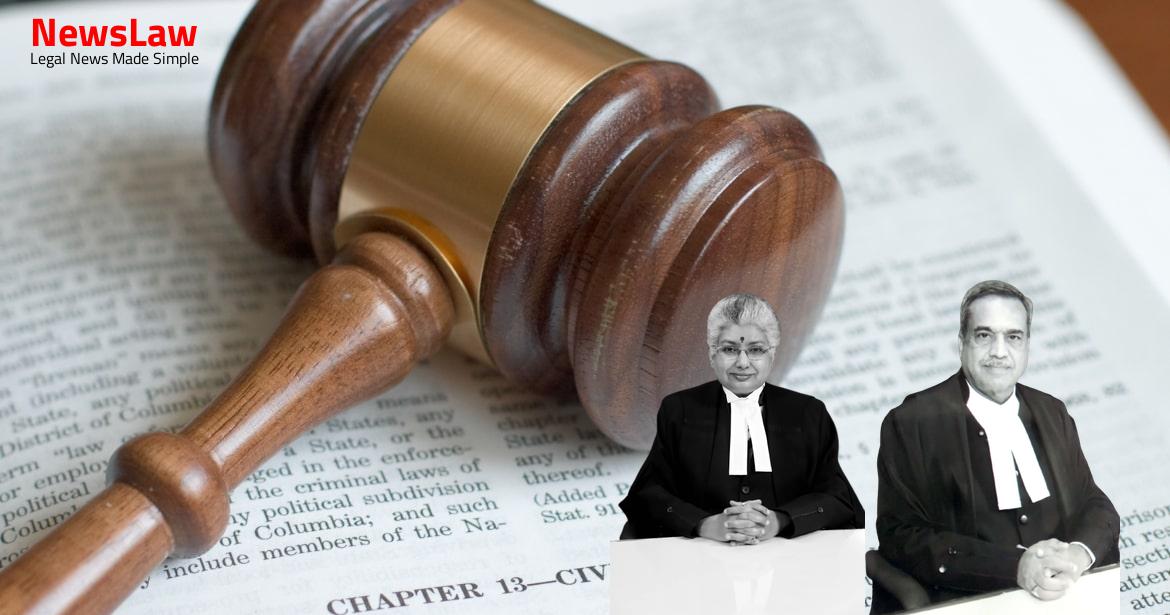(S)
Also Read: https://newslaw.in/supreme-court/quashing-of-high-court-judgment-on-land-acquisition-proceedings/
No 813 of 2018, by which the High Court has dismissed the said appeal(s) preferred by the appellant herein – employer confirming the judgment and order passed by the Industrial Tribunal ordering reinstatement and directing that the concerned employees / workmen were the employees of the appellant – principal employer, the principal employer – Kirloskar Brothers Limited has preferred the present appeals. Upon entering into the contract, necessary compliances under Contract Labour (Regulation and Abolition) Act, 1970 (hereinafter referred to as “CLRA Act”) was completed by the appellant and the respondent No 7 – contractor.
The writ appeal filed against the judgment and order passed by the learned Single Judge has been dismissed as not maintainable and hence the appellant has preferred the present appeals challenging the judgment(s) and order(s) passed by the learned Single Judge as well as by the Division Bench of the High Court. It is submitted that therefore and in the absence of a notification under Section 10 of CLRA Act and there being no allegations or findings with regard to the contract being a sham, the contesting respondents could not have been held to be employees of the appellant and not of the contractor.
National Union Waterfront Workers and Ors., (2001) 7 SCC 1 (paras 65, 108, 109, 120 and 125) and International Airport Authority of India Vs.
Also Read: https://newslaw.in/supreme-court/final-decision-and-disclosure-in-collegium-meetings/
It is submitted that even the deduction of PF and/or PF contribution by the appellant may not go against the appellant. It is submitted that therefore, the only conclusion based upon the record would be that the contesting respondents were the employee of the contractor. There is no provision under Section 10 of the CLRA Act that the workers/employees employed by the contractor automatically become the employees of the appellant and/or the employees of the contractor shall be entitled for automatic absorption and/or they become the employees of the principal employer. 2 Under the contract and even under the provisions of the CLRA, a duty was cast upon the appellant to pay all statutory dues, including salary of the workmen, payment of PF contribution, and in case of non- payment of the same by the contractor, after making such payment, the same can be deducted from the contractor’s bill. The upshot of the above discussion is outlined thus : (1)( a ) Before 28-1-1986, the determination of the question whether the Central Government or the State Government is the appropriate Government in relation to an establishment, will depend, in view of the definition of the expression “appropriate Government” as stood in the CLRA Act, on the answer to a further question, is the industry under consideration carried on by or under the authority of the Central Government or does it pertain to any specified controlled industry, or the establishment of any railway, cantonment board, major port, mine or oilfield or the establishment of banking or insurance company?
If the answer is in the affirmative, the Central Government will be the appropriate Government; otherwise in relation to any other establishment the Government of the State in which the establishment was situated, would be the appropriate Government; ( b ) After the said date in view of the new definition of that expression, the answer to the question referred to above, has to be found in clause ( a ) of Section 2 of the Industrial Disputes Act; if ( i ) the Central Government company/undertaking concerned or any undertaking concerned is included therein eo nomine, or ( ii ) any industry is carried on ( a ) by or under the authority of the Central Government, or ( b ) by a railway company; or ( c ) by a specified controlled industry, then the Central Government will be the appropriate Government; otherwise in relation to any other establishment, the Government of the State in which that other establishment is situated, will be the appropriate Government. from the date of this judgment and subject to the clarification that on the basis of this judgment no order passed or no action taken giving effect to the said notification on or before the date of this judgment, shall be called in question in any tribunal or court including a High Court if it has otherwise attained finality and/or it has been implemented. (3) Neither Section 10 of the CLRA Act nor any other provision in the Act, whether expressly or by necessary implication, provides for automatic absorption of contract labour on issuing a notification by the appropriate Government under sub-section (1) of Section 10, prohibiting employment of contract labour, in any process, operation or other work in any establishment. If the contract is found to be not genuine but a mere camouflage, the so-called contract labour will have to be treated as employees of the principal employer who shall be directed to regularise the services of the contract labour in the establishment concerned subject to the conditions as may be specified by it for that purpose in the light of para 6 hereunder. (6) If the contract is found to be genuine and prohibition notification under Section 10(1) of the CLRA Act in respect of the establishment concerned has been issued by the appropriate Government, prohibiting employment of contract labour in any process, operation or other work of any establishment and where in such process, operation or other work of the establishment the principal employer intends to employ regular workmen, he shall give preference to the erstwhile contract labour, if otherwise found suitable and, if necessary, by relaxing the condition as to maximum age appropriately, taking into consideration the age of the workers at the time of their initial employment by the contractor and also relaxing the condition as to academic qualifications other than technical qualifications.” 5
Thus, as observed and held by this Court, n either Section 10 of the CLRA Act nor any other provision in the Act, expressly or by necessary implication, provides for automatic absorption of contract labour on issuing a notification by the appropriate Government under sub-section (1) of Section 10, prohibiting employment of contract labour, in any process, operation or any other work in any establishment and consequently, the principal employer cannot be required to order absorption of the contract labour working in the establishment concerned.
6
In the present case, neither any notification under Section 10(1) of the CLRA Act has been issued prohibiting the contract labour, nor there are allegations and/or even findings that the contract is sham and bogus and/or camouflage. (supra), it has been observed and held by this Court that where there is no abolition of contract labour under Section 10 of the CLRA Act, but the contract labour contends that the contract between the principal employer and the contractor is sham and nominal, the remedy is purely under the ID Act.
It is further observed that where there is no notification under Section 10 of the CLRA Act and where it is not proved in the industrial adjudication that the contract was a sham/nominal and camouflage, then the question of directing the principal employer to absorb or regularise the services of the contract labour does not arise.
Only when the contractor assigns/sends the worker to work under the principal employer, the worker works under the supervision and control of the principal employer but that is secondary control. No 813 of 2018 as well as the judgment and order passed by the Industrial Tribunal are hereby quashed and set aside.
Case Title: KIRLOSKAR BROTHERS LIMITED Vs. RAMCHARAN (2022 INSC 1255)
Case Number: C.A. No.-008446-008447 / 2022



